Tomcat
Professional
- Messages
- 2,687
- Reaction score
- 1,038
- Points
- 113
The police are talking about the first criminal case in Russia for issuing counterfeit bank cards.
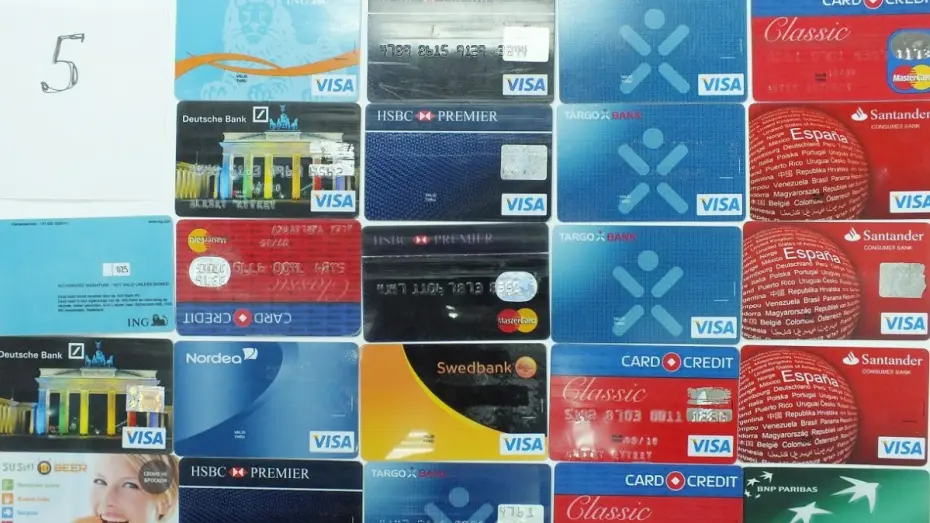
Two Voronezh residents found themselves in the dock in a case of manufacturing counterfeit bank cards. Young people received money from the accounts of US citizens using plastic cards made in a rented apartment near Voronezh. The fakes looked no different from the real ones.
According to investigators, Artem Alexandrov and Denis Kukolev (surnames have been changed) were part of an organized criminal group operating throughout Russia and abroad. The leader of an organized crime group received 48 years in prison in Thailand for stealing money from American accounts. However, the group successfully continued its “work” without him - some of its members issued counterfeit cards, others recorded the information of real owners on their magnetic stripes, others withdrew money from ATMs and made expensive purchases in stores.
The details of the first criminal case in Russia on the production of bank cards for the purpose of using them, the role of Voronezh residents in a criminal group and the technology of thefts from bank cards were told to the RIA Voronezh journalist by Nikolai Golovin, head of the investigative unit for ROPD of the Main Investigation Department of the Main Directorate of the Ministry of Internal Affairs for the Voronezh Region.
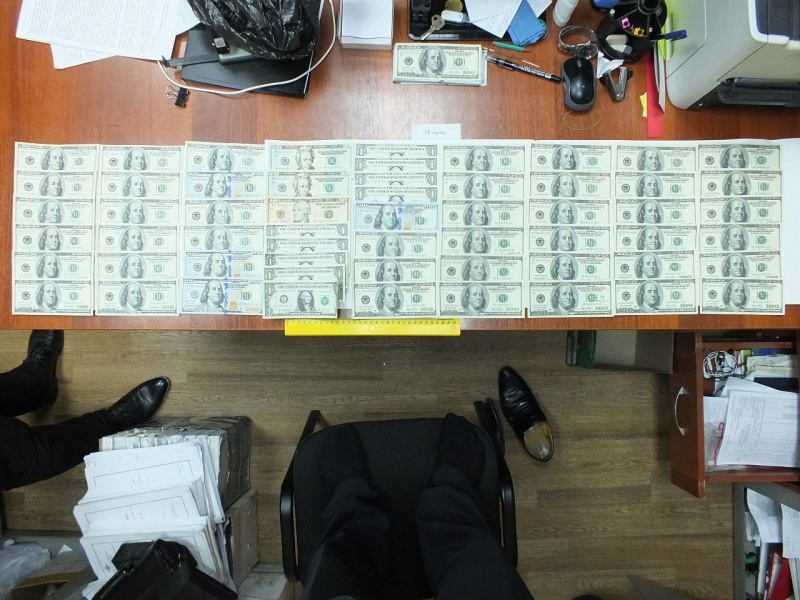
– In June 2023, legislators amended Art. 187 of the Criminal Code of the Russian Federation, clarifying that criminal liability can be brought not only for the sale of payment cards, but also for their production for the purpose of use. This made it possible to initiate a case against Aleksandrov and Kukolev – the first in Russia,” explained Nikolai Golovin.
The men who were charged with the production of payment cards by an organized criminal group turned out to be quite respectable Voronezh residents with excellent characteristics. Aleksandrov worked at different times in construction companies, in a company installing plastic windows, and in trade. The young man tried to earn an honest living - but, probably, a family with a small child did not have enough money. It was difficult for Artem to refuse the easy money that came into his hands. To minimize risk, Aleksandrov persuaded one of his colleagues, Denis Kukolev, to help him withdraw money from ATMs and make purchases in shopping centers with fake cards. Like Alexandrov, Kukolev was considered a decent person, a good family man.
For men, stealing money from US bank accounts became a hobby that they did 5-10 days a month, a profitable entertainment that brought in 100-150 thousand rubles a month for each. Investigators suggest that Alexandrov and Kukolev cashed out 1.5-2 million rubles a month, sending 80% of the illegal earnings to the top of the criminal group.
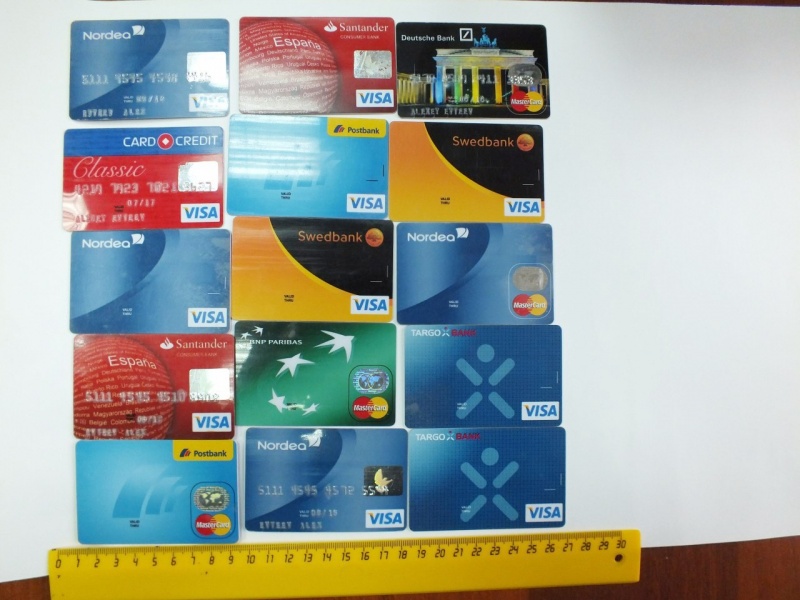
“Before taking a person into this illegal business, they check him for a long time. The group members train new people and take a closer look at them. For verification, first they give you their cards, knowing what the balance is on them. After cashing out, the person keeps 20% for himself, and gives 80% to those who sent him the cards. This is how he earns trust, with which the number of payment cards increases - cards appear, the balance of which those who give the tasks do not know. The group members, whose role is to withdraw money, are essentially playing at ATMs, collecting arbitrary amounts. Computer crimes are extremely difficult to detect and prove, since members of the organized crime group adhere to serious secrecy - they use codes for communication, and files on computers are encrypted. Therefore, we were able to identify only the Voronezh members of the group,” said Nikolai Golovin.
Having passed all the checks, Artem Alexandrov earned the trust of the top of the organized crime group - but soon found himself under a criminal case for stealing money from the bank cards of Russian citizens. In 2013, the court sentenced Alexandrov to a fine of 100 thousand rubles. The guy decided to give up stealing money from ATMs, but the leader of the organized crime group, Evgeny Timofeev (last name has been changed), did not allow him to retire: his group had been operating at least since 2013.
Alexandrov was well acquainted with Timofeev, who more than once expressed his trust and respect to him.
– As we managed to establish, Alexandrov went with Timofeev to Vietnam on business trips three to four times a year for two to three weeks. There are usually many American tourists in this country, and payment systems easily carry out non-cash transactions from US bank cards. In Vietnam, accomplices withdrew money and also bought iPads, iPhones, and other expensive equipment using counterfeit cards, brought them to Russia, cleared them through customs and sold them, explained Nikolai Golovin.
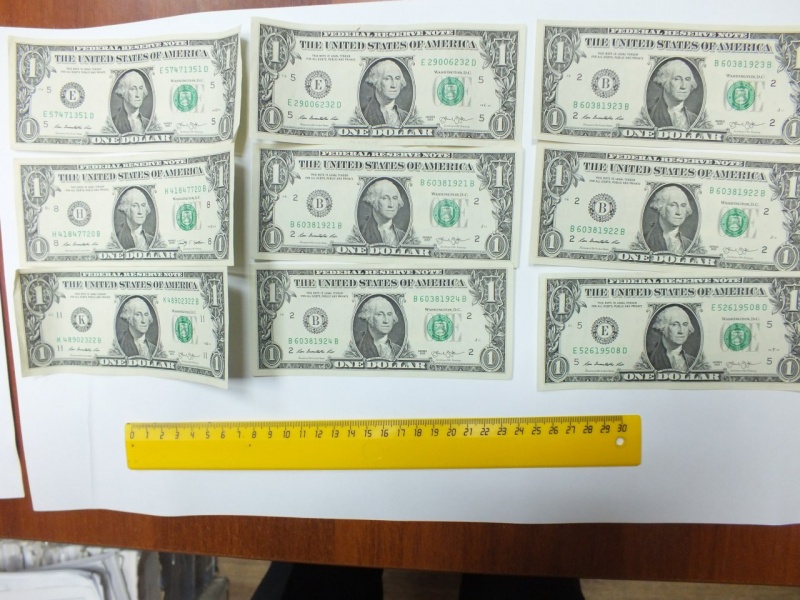
After his conviction, Evgeny Timofeev offered Aleksandrov a new role in the organized crime group - printing plastic cards and transferring them through bus drivers to other cities. The leader brought the young man to Vietnam, where he was taught the technology of making bank cards in a rented apartment with equipment.
– There can be no case for plastic without information. Making plastic is not a crime,” Timofeev persuaded.
Alexandrov became convinced that the patron was right after studying the issue from the legal side. He agreed to “issue” cards similar to bank cards. At first I made them at home while my wife was at work. Later he rented an apartment, where he installed the necessary equipment and kept materials.
The Voronezh resident was paid $5 for one card, which he stamped in dozens - if desired, one bookmark in a special device yielded 100 pieces. Artem Aleksandrov passed the “plastic” above, where other participants wrote down on copies illegally obtained information from the magnetic stripes of payment cards of legal holders from the United States. Investigators found that members of the organized crime group bought a complex set of numbers and PIN codes for credit and payment cards directly via the Internet from hackers using only “nicknames” and having access to US bank account databases. Payment for the supply of digital data from the cards of Americans was carried out using bitcoins (Internet currency), which are used as conventional units on the “black market”.
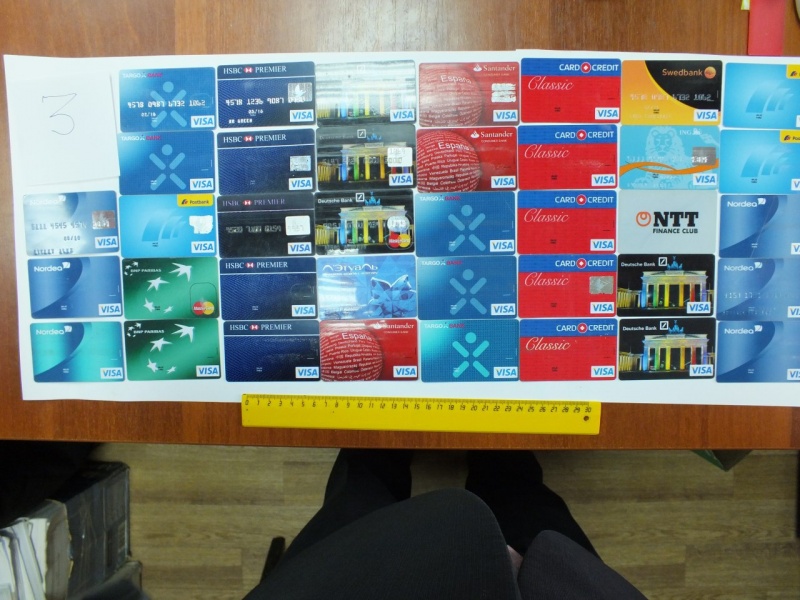
– Who will report the missing money – Americans, US banks? Where are we and where are the Americans! Nobody will report. If there are no victims with statements, there is no case,” Timofeev reasoned, suggesting that Artem Alexandrov return to “playing ATMs” and shopping with “plastic”, where the card data of US citizens was recorded.
Aleksandrov liked the leader’s logic, and the temptation to earn more was great. In order not to risk it himself, Artem involved Denis Kukolev in the business, whose task was to withdraw money from cards at ATMs and pay by card in stores. Aleksandrov bought himself a fake passport in the name of Alexey Evteev and pasted his photograph into it to show cashiers in shopping centers if they asked to confirm the identity of the card holder. The fake bank cards were of such good quality that they could not be distinguished from real ones. Therefore, Alexandrov often did not have problems with cashiers.
Having received the cards, Aleksandrov used another device - an embosser, with which he squeezed out letters and numbers on the card - the holder’s last and first name, card number and its service life. Then he took a tipper, with which he applied a silver or gold color to the card. Aleksandrov recorded information on the magnetic strip of the card using an encoder.
Based on the results of the investigation, Alexandrov and Kukolev admitted guilt. True, all their confessions are based on evidence collected by investigators. The actual scale of their activities and earnings may turn out to be even larger. Voronezh residents face up to 7 years in prison for crimes. In addition, Aleksandrov is being tried for forging a passport. During the investigation, after four months in a pre-trial detention center, the court softened the measure of restraint for the men. The defendants in the case are awaiting sentencing while under house arrest.
(c) https://riavrn.ru/news/samodelnye-k...onezhtsy-krali-dengi-so-schetov-amerikantsev/

Two Voronezh residents found themselves in the dock in a case of manufacturing counterfeit bank cards. Young people received money from the accounts of US citizens using plastic cards made in a rented apartment near Voronezh. The fakes looked no different from the real ones.
According to investigators, Artem Alexandrov and Denis Kukolev (surnames have been changed) were part of an organized criminal group operating throughout Russia and abroad. The leader of an organized crime group received 48 years in prison in Thailand for stealing money from American accounts. However, the group successfully continued its “work” without him - some of its members issued counterfeit cards, others recorded the information of real owners on their magnetic stripes, others withdrew money from ATMs and made expensive purchases in stores.
The details of the first criminal case in Russia on the production of bank cards for the purpose of using them, the role of Voronezh residents in a criminal group and the technology of thefts from bank cards were told to the RIA Voronezh journalist by Nikolai Golovin, head of the investigative unit for ROPD of the Main Investigation Department of the Main Directorate of the Ministry of Internal Affairs for the Voronezh Region.
Who stole money from US citizens
Artem Aleksandrov and Denis Kukolev were detained in February 2016 after several months of operational development - observation and collection of evidence. Kukolev was caught red-handed when he withdrew almost 50 thousand rubles from an ATM from 15 counterfeit plastic cards. Alexandrov was taken after searches in his rented apartment near Voronezh, equipment and materials for issuing bank cards, 180 counterfeit plastic cards, 9 thousand dollars and almost 400 cartridges were seized.
– In June 2023, legislators amended Art. 187 of the Criminal Code of the Russian Federation, clarifying that criminal liability can be brought not only for the sale of payment cards, but also for their production for the purpose of use. This made it possible to initiate a case against Aleksandrov and Kukolev – the first in Russia,” explained Nikolai Golovin.
The men who were charged with the production of payment cards by an organized criminal group turned out to be quite respectable Voronezh residents with excellent characteristics. Aleksandrov worked at different times in construction companies, in a company installing plastic windows, and in trade. The young man tried to earn an honest living - but, probably, a family with a small child did not have enough money. It was difficult for Artem to refuse the easy money that came into his hands. To minimize risk, Aleksandrov persuaded one of his colleagues, Denis Kukolev, to help him withdraw money from ATMs and make purchases in shopping centers with fake cards. Like Alexandrov, Kukolev was considered a decent person, a good family man.
For men, stealing money from US bank accounts became a hobby that they did 5-10 days a month, a profitable entertainment that brought in 100-150 thousand rubles a month for each. Investigators suggest that Alexandrov and Kukolev cashed out 1.5-2 million rubles a month, sending 80% of the illegal earnings to the top of the criminal group.
How Voronezh residents became members of an organized crime group
Artem Alexandrov ended up in a criminal group that specialized in stealing money from bank cards several years ago. Presumably, Alexandrov met and kept in touch with its participants via the Internet. Aleksandrov communicated with the thieves through a computer encrypted network “for his own.”
“Before taking a person into this illegal business, they check him for a long time. The group members train new people and take a closer look at them. For verification, first they give you their cards, knowing what the balance is on them. After cashing out, the person keeps 20% for himself, and gives 80% to those who sent him the cards. This is how he earns trust, with which the number of payment cards increases - cards appear, the balance of which those who give the tasks do not know. The group members, whose role is to withdraw money, are essentially playing at ATMs, collecting arbitrary amounts. Computer crimes are extremely difficult to detect and prove, since members of the organized crime group adhere to serious secrecy - they use codes for communication, and files on computers are encrypted. Therefore, we were able to identify only the Voronezh members of the group,” said Nikolai Golovin.
Having passed all the checks, Artem Alexandrov earned the trust of the top of the organized crime group - but soon found himself under a criminal case for stealing money from the bank cards of Russian citizens. In 2013, the court sentenced Alexandrov to a fine of 100 thousand rubles. The guy decided to give up stealing money from ATMs, but the leader of the organized crime group, Evgeny Timofeev (last name has been changed), did not allow him to retire: his group had been operating at least since 2013.
Alexandrov was well acquainted with Timofeev, who more than once expressed his trust and respect to him.
– As we managed to establish, Alexandrov went with Timofeev to Vietnam on business trips three to four times a year for two to three weeks. There are usually many American tourists in this country, and payment systems easily carry out non-cash transactions from US bank cards. In Vietnam, accomplices withdrew money and also bought iPads, iPhones, and other expensive equipment using counterfeit cards, brought them to Russia, cleared them through customs and sold them, explained Nikolai Golovin.

After his conviction, Evgeny Timofeev offered Aleksandrov a new role in the organized crime group - printing plastic cards and transferring them through bus drivers to other cities. The leader brought the young man to Vietnam, where he was taught the technology of making bank cards in a rented apartment with equipment.
– There can be no case for plastic without information. Making plastic is not a crime,” Timofeev persuaded.
Alexandrov became convinced that the patron was right after studying the issue from the legal side. He agreed to “issue” cards similar to bank cards. At first I made them at home while my wife was at work. Later he rented an apartment, where he installed the necessary equipment and kept materials.
The Voronezh resident was paid $5 for one card, which he stamped in dozens - if desired, one bookmark in a special device yielded 100 pieces. Artem Aleksandrov passed the “plastic” above, where other participants wrote down on copies illegally obtained information from the magnetic stripes of payment cards of legal holders from the United States. Investigators found that members of the organized crime group bought a complex set of numbers and PIN codes for credit and payment cards directly via the Internet from hackers using only “nicknames” and having access to US bank account databases. Payment for the supply of digital data from the cards of Americans was carried out using bitcoins (Internet currency), which are used as conventional units on the “black market”.

– Who will report the missing money – Americans, US banks? Where are we and where are the Americans! Nobody will report. If there are no victims with statements, there is no case,” Timofeev reasoned, suggesting that Artem Alexandrov return to “playing ATMs” and shopping with “plastic”, where the card data of US citizens was recorded.
Aleksandrov liked the leader’s logic, and the temptation to earn more was great. In order not to risk it himself, Artem involved Denis Kukolev in the business, whose task was to withdraw money from cards at ATMs and pay by card in stores. Aleksandrov bought himself a fake passport in the name of Alexey Evteev and pasted his photograph into it to show cashiers in shopping centers if they asked to confirm the identity of the card holder. The fake bank cards were of such good quality that they could not be distinguished from real ones. Therefore, Alexandrov often did not have problems with cashiers.
What was the technology for counterfeiting cards?
Artem Alexandrov demonstrated the technology for making bank cards to police during an investigative experiment. To counterfeit bank cards, Artem Aleksandrov used plastic sheets of polyvinyl chloride (PVC), which he placed in a laminating press with hot-melt adhesive. The sheets contained drawings of payment cards with bank symbols, which the man colored by running the plastic through a printer. The laminator press glued, in fact, “sintered” layers of plastic with holograms and magnetic stripes into a single whole. After waiting for the filling to cool, Aleksandrov gave the plastic the desired shape using a “hand cutter.” The young man also had ready-made MasterCard and Visa holograms and MasterCard and Visa signature stripes, which he sometimes glued to the cards after baking.Having received the cards, Aleksandrov used another device - an embosser, with which he squeezed out letters and numbers on the card - the holder’s last and first name, card number and its service life. Then he took a tipper, with which he applied a silver or gold color to the card. Aleksandrov recorded information on the magnetic strip of the card using an encoder.
How Voronezh residents stole money from American accounts
The evidence in the card making case was the testimony of a gas station operator where Aleksandrov and Kukolev tried to make purchases using counterfeit cards. Suspecting something was wrong, the woman took the passport in the name of Alexey Evteev, which the clients presented to her. In addition, Voronezh police received information from colleagues from Minsk about cards in the name of Alexey Evteev, which were “chewed” by ATMs. It turned out that Alexandrov and Kukolev “showed up” there when they went shopping in Belarus. According to operational data, accomplices often visited neighboring regions for the same purposes.Based on the results of the investigation, Alexandrov and Kukolev admitted guilt. True, all their confessions are based on evidence collected by investigators. The actual scale of their activities and earnings may turn out to be even larger. Voronezh residents face up to 7 years in prison for crimes. In addition, Aleksandrov is being tried for forging a passport. During the investigation, after four months in a pre-trial detention center, the court softened the measure of restraint for the men. The defendants in the case are awaiting sentencing while under house arrest.
(c) https://riavrn.ru/news/samodelnye-k...onezhtsy-krali-dengi-so-schetov-amerikantsev/

